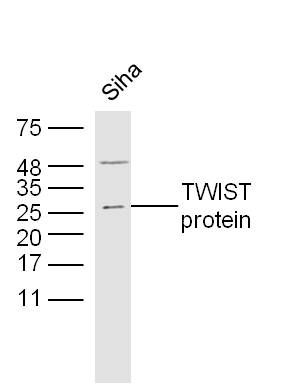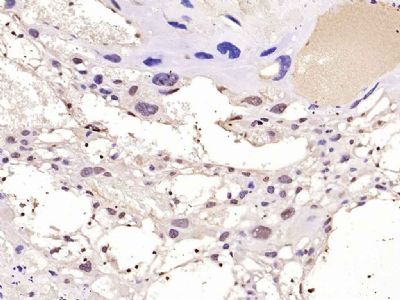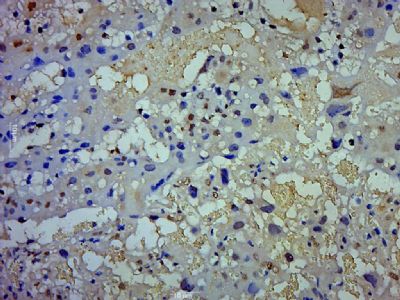[IF=3.06] Jin, Meiyuan. et al. Role of ARID1A in the Regulation of Human Trophoblast Migration and Invasion. 2021 Jul 13 WB ; Human.
[IF=4.175] Junmin Li. et al. Circ_ZFR contributes to the paclitaxel resistance and progression of non-small cell lung cancer by upregulating KPNA4 through sponging miR-195-5p. Cancer Cell Int. 2021 Dec;21(1):1-15
[IF=10.679] Pan J et al. lncRNA JPX/miR-33a-5p/Twist1 axis regulates tumorigenesis and metastasis of lung cancer by activating Wnt/β-catenin signaling. Mol Cancer. 2020 Jan 15;19(1):9. IHSLCP ; Mouse.
[IF=2.058] Ma T et al. MiR-940 inhibits migration and invasion of tongue squamous cell carcinoma via regulatingCXCR2/NF-κB system-mediated epithelial–mesenchymal transition. Naunyn Schmiedebergs Arch Pharmacol. 2019 Jun 18. WB&IF ; Human.
[IF=4.522] Chang J et al. miR‐363‐3p inhibits migration, invasion, and epithelial–mesenchymal transition by targeting NEDD9 and SOX4 in non‐small‐cell lung cancer. J Cell Physiol. 2019 Jul 22. WB ; Human.
[IF=3.25] Xu, Shichen, et al. "Capsaicin inhibits metastasis of human papillary thyroid carcinoma BCPAP cells through modulation of the TRPV1 channel." Food & Function (2017). Human.
[IF=3.19] Zhang, Lei, et al. "High-Throughput RNAi Screening Identifies a Role for the Osteopontin Pathway in Proliferation and Migration of Human Aortic Smooth Muscle Cells." Cardiovascular Drugs and Therapy (2016): 1-15. IF(ICC) ; Human.
[IF=2.952] Jian Shi. et al. FOXP4 promotes laryngeal squamous cell carcinoma progression through directly targeting LEF‑1. Mol Med Rep. 2021 Dec;24(6):1-10 WB ; human .
[IF=7.333] Shen et al. Ube2v1-mediated ubiquitination and degradation of Sirt1 promotes metastasis of colorectal cancer by epigenetically suppressing autophagy. (2018) J.Hematol.Oncol. 11:95 WB ; Human.
[IF=4.12] Wang et al. Kukoamine A inhibits human glioblastoma cell growth and migration through apoptosis induction and epithelial-mesenchymal transition attenuation. (2016) Sci.Rep. 6:36543 WB ; Human.


